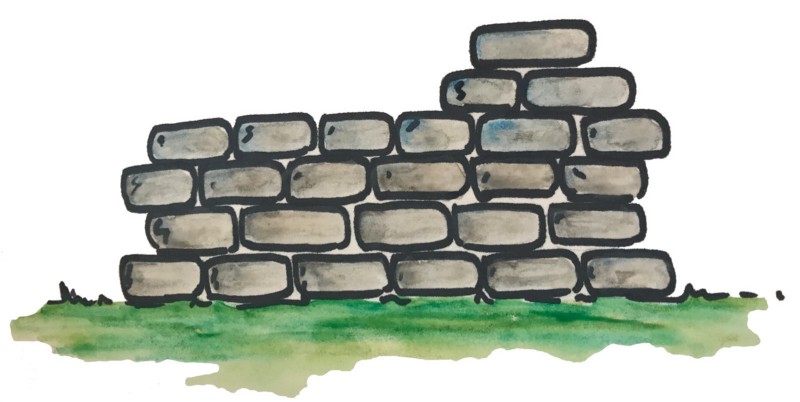Three fallacies that get in the way of taking constructive feedback. Here’s how by recognizing them, we can overcome them.

My stomach dropped. My face flushed.
I thought to myself: “No way that’s true!” and “No way that’s me…”
Those were my physical and mental reactions when an acquaintance gave me some feedback a few years ago. (She told me I had “come across as fake” to her… Ouch!)
My first instinct was to completely dismiss her feedback.
Now looking back, I wonder… Why?
Why was my first instinct to push this feedback away? Why was I so quick to say it wasn’t true or that it didn’t matter?
Simply put: We hate criticism.
Anything negative, anything critical — we fear it. We resist, push back, and build a wall around ourselves.
In fact, as humans, our brains are hardwired to resist negative feedback. Research show how our brains hold onto negative memories longer than positive ones — so the negative stuff always hurts more. We’re more upset about losing $50 than gaining $50… It’s the same when it comes to feedback. When we hear something negative, it sticks with us more than when someone tells us something positive about ourselves.
Our distaste for negative feedback is so strong that further research shows we drop people in our network who tell us things we don’t want to hear. In a recent study with 300 full-time employees, researchers found that people moved away from colleagues who provided negative feedback. Instead, they chose to seek out interactions with people who only affirmed their positive qualities.
Fascinating, right? In other words, whether or not we intend to, we seem to insulate ourselves away from any potential negative self-image of ourselves.
To be honest, it sounds like quite a self-absorbed way to live: To seek out only those who tell you what you want to hear. To never have the humility to want to learn, adjust, improve and become better.
How did we get like this?
Some psychologists suggest that we associate negative feedback with criticism received in school or from our parents growing up, and that’s what prevents us from hearing negative feedback.
Personally, I’ve found three fallacies in my own head that get in the way of me being receptive to negative feedback…
- I’m a perfectionist. I expect myself to be good at everything. So when I hear negative feedback about myself, it conflicts with what I think is true… and it makes me push the feedback away.
- I don’t trust the other person. I’m skeptical of the person who gave me the feedback. What was her intention? Does she really have the full story? Perhaps she just misinterpreted things? So I disregard the feedback, as a result.
- I conflate behavior with identity. I interpret the feedback as an assessment my sense of self-worth. “If I’m seen as fake by someone, that must mean I’m a bad person.” It’s hurtful to think about this, so I choose to ignore the feedback.
These knee-jerk reactions are the foundation for the wall I start to build around me when I hear negative feedback.
To knock down this wall, and make sure my mind and heart is open to receiving criticism, I keep these three fallacies in mind. When someone gives me negative feedback, I ask myself…
- Am I being a perfectionist? Are my perfectionist tendencies getting in the way of hearing something worth learning from this feedback?
- Am I distrustful of the other person? Am I resisting this feedback simply because of my relationship with this person, or what I perceive her or his intentions to be?
- Am I conflating behavior with identity? Am I shutting out this feedback because I’m projecting this feedback onto my sense of self-worth?
Take a moment to sit and marinate on these questions. They may uncover why you tend to isolate yourself from feedback. This understanding of why you dismiss feedback is the first step to making sure you’re hearing all of it.
After all, you don’t want to get caught inadvertently pushing away those who tell you the truth, creating a circle of yes-people who tell you only what you want to hear.
Know why you dismiss feedback, first.
You might also find these articles helpful…




